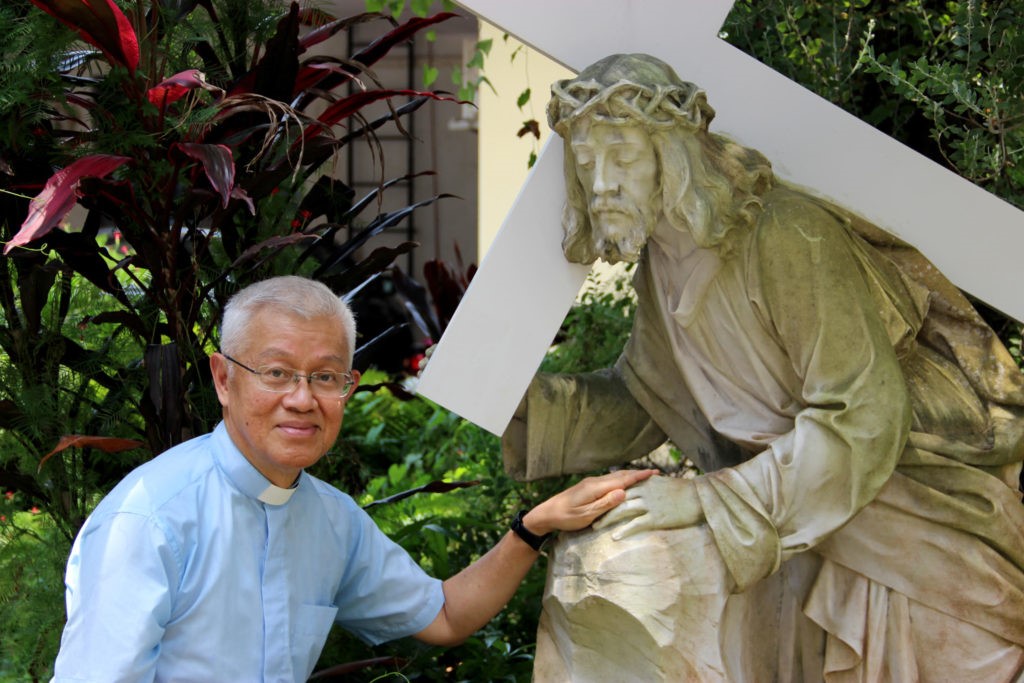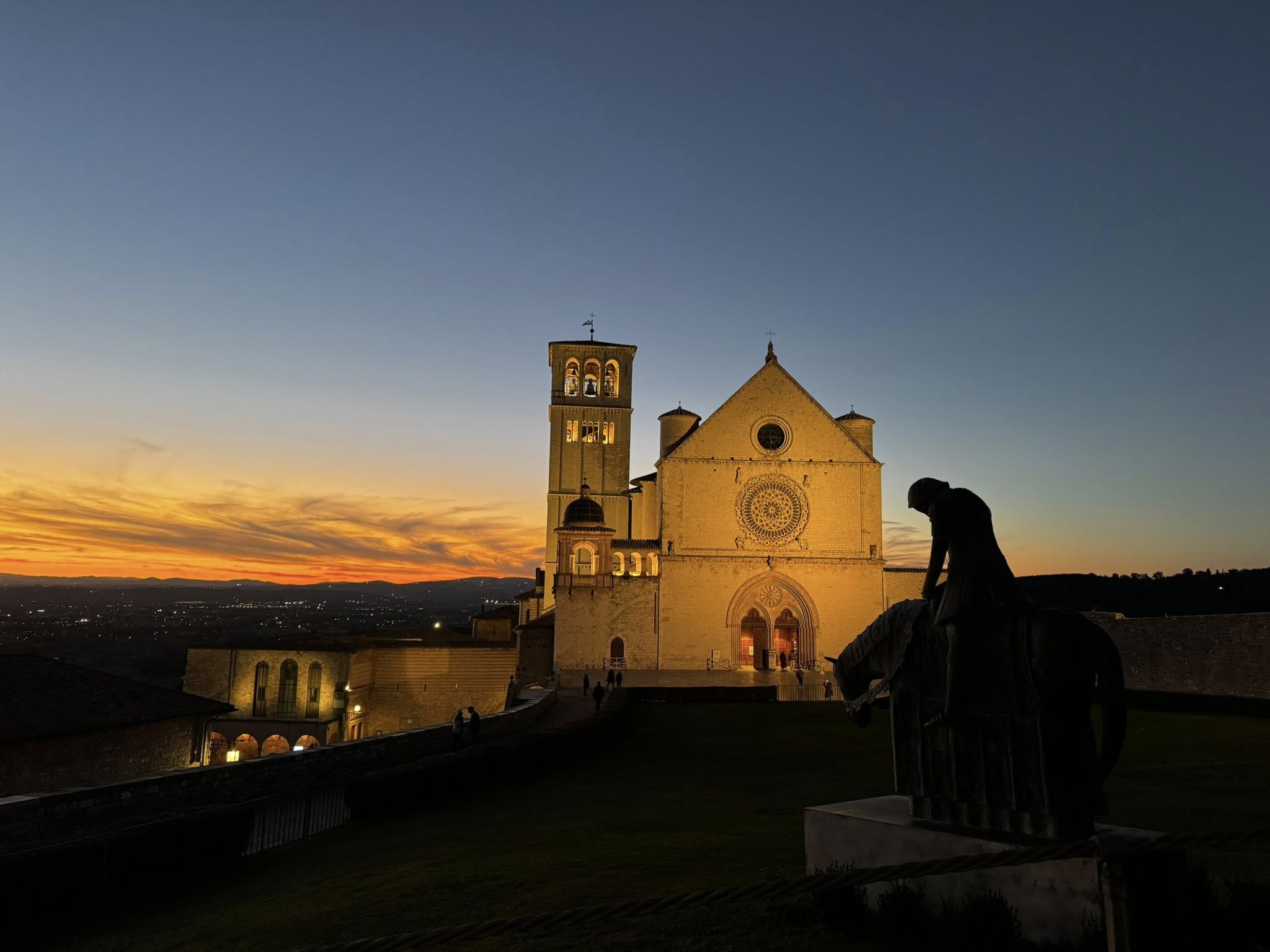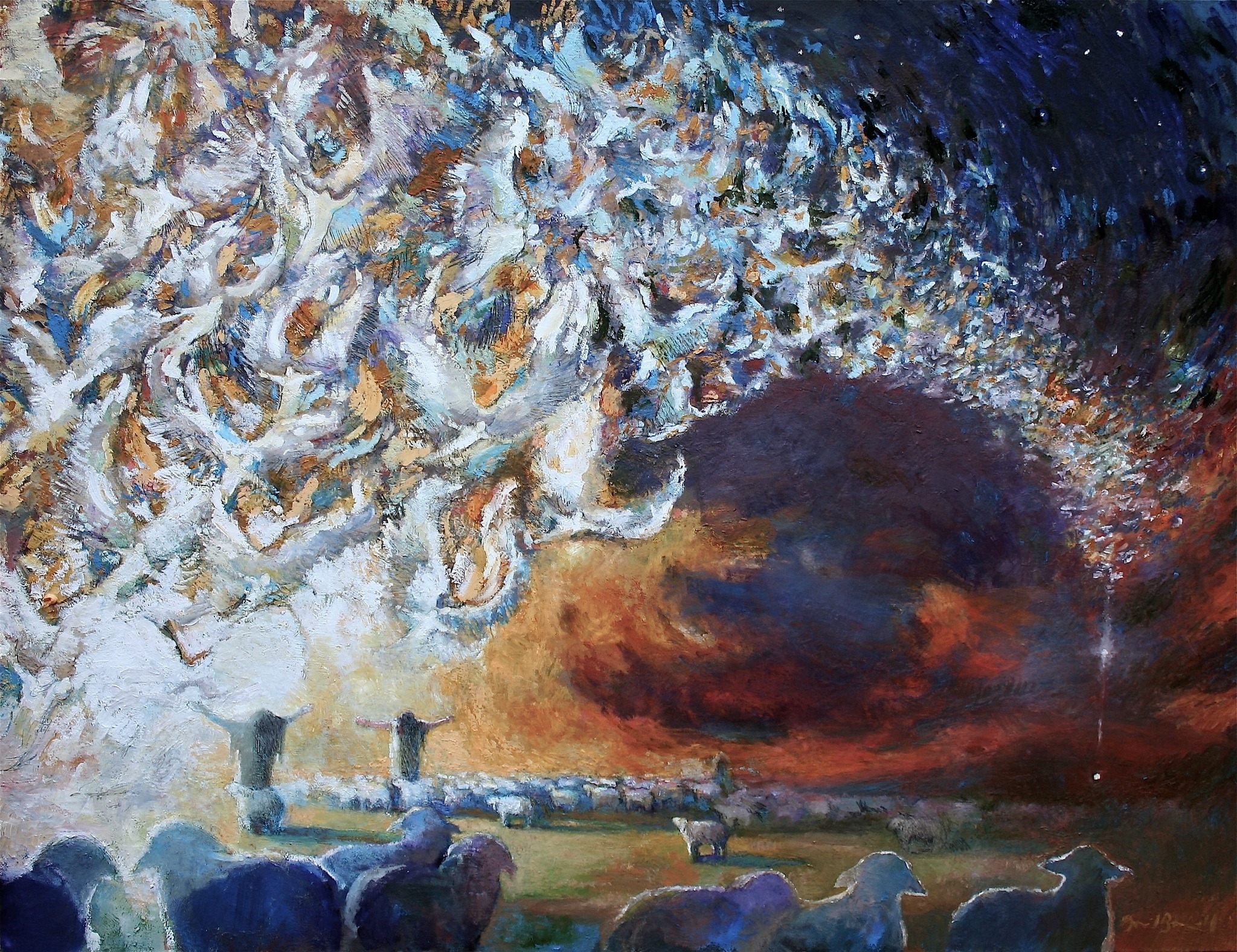– Marco Carvalho
Born in Malaysia to a Chinese overseas family, Gregory Koay grew up in neighboring Hong Kong and it was in the then British colony that he first heard the call of God and felt the appeal of the Society of Jesus. His journey was not, nevertheless, a smooth, untroubled one. He joined the Jesuits at the age of 22, against his father’s will. His persistence was rewarded years later when the Koay family patriarch decided he wanted to be baptized. Half a century later, Father Koay says the 50 years jubilee that he celebrated last July is anything but the end. God’s grace, he claims, is still working so that Christ works in him and through him.
Fifty years can be much more than one life. When you first entered the Society of Jesus, did you think you would be celebrating like this one day?
I never thought of that. I just lived day by day. In fact, my mother said, “If you are not happy in the Society, come back and we will welcome you.” I was very touched by my mother. She was, at the same time, a bit sad to see her son leaving, going to the novitiate in Cheung Chau. It was still in Hong Kong, but a far, quiet version of Hong Kong. But I remember that clearly. “Come back any time if you find this is not God’s way for you”.
When did you know for sure that you wanted to be a Jesuit? Was the decision of becoming a priest and of becoming a Jesuit taken at the same time?
I can’t say for sure about the exact moment, but I seem to hear a call during a retreat in Cheung Chau, when I saw a group of Chinese novices praying in front of the statue of Our Lady. I said: “So, there are also Chinese in the Society of Jesus. There are Chinese Jesuit novices.” At first, I thought that only Irish or Westerners were allowed to be members of the order.
That was one of the reasons that led you to believe that you could also be one of them …
Yes. I was praying in a chapel – a dark chapel – in front of the statue of Our Lady and then, suddenly, I saw three or four young men praying in white cassocks. I was in awe when I noticed they were Chinese. This vision worked like a seedling buried under the ground. It would take some years for it to sprout. In fact, when I finished high school, Form 7, I asked my father: “Would it be possible if I could try it out?” My papa said: “No.” He wouldn’t allow it. So I said to myself that I would work for two years, teaching in a Primary School, to make sure what was the right way for me. After two years, at the age of 22, I asked my father again. He still said no. I said, “Well, I have waited long enough. I would like to try it out, with mama’s blessing.” So, I just left home.
You father… When did he accept your decision? Or he didn’t at all?
Only after some years in the order did he accept my decision. Actually, I used to write to my mother. I never wrote to my father. After a few years, he changed his mind. He was a non-Christian, he was not baptized. But a few years after I entered the Society, he decided he wanted to be baptized. My mother, she was baptized. Now, my whole earthly family – I have an elder brother, an elder sister, a younger brother and a younger sister, I am the third in the family – all of them are baptized, except for my elder sister. She entered the Baptist Church.
The Society of Jesus was always known by a certain thirst of knowledge. It always worked with the aim of knowing God by knowing men and Humanity. Did this aspect influence your choice to become a Jesuit?
The Jesuits that I have come across, they were all very human, although at certain times they were rather rational, using reason more than feelings or heart. This always happened, despite the fact that some of them were very warm, very friendly. I have met quite a few Irish Jesuits in Wah Yan College when I was young. I was a student of that school and I was deeply touched by this group of foreign missionaries that had left Ireland and came all the way to Hong Kong. They worked, they lived, they sacrificed their lives on behalf of Hong Kong. Most of them are buried in Happy Valley Catholic Cemetery. Only a few returned to their native home of Ireland. In that sense, I would say that Jesuits thirst for knowledge, yes. They read a lot of books, they have a rather wide experience in various fields.
When the call to be a priest first came , were you ready to make the kind of sacrifice that you were talking about? If the Society told you to go all the way across the world to preach the word of God, would you do it without blinking?
At that time, I was not that ready and open to the idea of sacrificing my life to Christ, to bring others to Christ and put my life on the line. I was ready to live day by day, to know Christ more clearly, to love him more dearly and to follow him more nearly, as the Gospel song exhorts us. I was, as I said, very moved by the Irish Jesuits and by their example. It was, I would say, a sort of “golden era,” the 60s, the 70s and the 80s. I was a Primary 5 Hong Kong Wah Yan pupil. I studied in the College from Primary 5 to Form 5. I spent seven years in Hong Kong Wah Yan. To get to know those Irish Jesuits and also a couple of Chinese Jesuits brought a certain enlightenment to my life. It’s a natural thing in human relations to know them better, but, of course, each person is a mystery. Most of the times, after classes, they would just disappear. They would go to their private quarters. The Fathers, they lived on what it seemed to me was a different realm, with their white cassocks, a pair of wings. They were like angels amongst us. They would walk upon the rooftop, saying the Rosary or the breviary. I remember I would ask myself very often: “Who are these foreigners? Why did they came all the way from Ireland to Hong Kong to teach us about Christ? To bring Christ to us? These are really great men. I would like to try to be like them.” This was God’s call to me, day by day and I was willing to give it a try. If it was not meant to be, I would return home.
You were saying that even before entering the novitiate, you taught for two years in a school. How did that experience reinforced your conviction that the Society of Jesus was the right choice for you?
I have always been interested in education, especially youth. I was teaching in Delia Memorial School, Primary 4, 5 and 6. This was the beginning of the 60s and I was teaching English and Arithmetic. I taught there for two years and during those two years I got to know very well some of the students, boys and girls, that studied at Delia Memorial School. I realized back then that if I was a brother or a priest, I would be in a better position to let them know about Christ and, somehow, to guide them towards Christ. That’s why I said: “Let me try.” My mother didn’t pose any problems. My father, on the other hand, many problems. Anyway, as I told you, he changed his mind. He began to understand what does it mean to follow a vocation, to have a son entering a religious order.
There was always a strong conviction ever since the beginning, but you were saying that your journey was made also step-by-step. Fifty years on, is there anything you would have done differently?
I have studied in a Protestant school, Primary 1, 2 and 3. I also studied in a Buddhist school, in Primary 4, 5 and 6. In Hong Kong Wah Yan I went back to Primary 5 because my English level was not that good, so I had to repeat two or three years. When I went to Primary 5 in Wah Yan, I should have gone to Form 5, but the Jesuit Father said: “No, you came from a Chinese Buddhist School, so we would like to give you a firm foundation in English.” I started at the age of 11 or 12: Primary 5, 6 and only then Form 5. I think it is a matter of knowing gradually and experientially – and not just theoretically – whether it is Protestantism, Buddhism or Catholicism. But, as I said earlier on, education is my line. It was my destiny to be a teacher, not to say an educator. My aim was to “educare,” to draw out the best from a person, whether it was a boy or a girl, a youth or even an adult. I was never inclined to be a businessman. I was rather poor at Math. My father was an accountant. He was very smart. He worked from the lower ranks: first as a temporary messenger, then as a clerk and then he became an assistant to the manager of the Overseas Chinese Bank. He was transferred from Penang, where I was born – we belonged to a family of overseas chinese – to Hong Kong in 1949. I was a two-year-old kid. I grew up in Hong Kong. My father had a lot of accountancy books, a lot of economy books. When I looked at them, I told my dad: “These books are not for me. They will throw me out the moment I enter a bank. I can’t be an accountant like you. However, I would like to be a teacher. I would like to join the Jesuits and become a Jesuit teacher.” I didn’t say that to him so explicitly, but he knew I was not fit to work in a bank. So, in the end he sold his pile of books, a very expensive pile of books. Most of them ended their existence as waste paper. You may say this call is very hard to understand. It came bit by bit, in playful moments, in silence. It was not like Saint Paul, a conversion that happened suddenly. It was a gradual accumulation of prayer, of going to retreats, of reading life’s of Saints. I always liked to read books. I was a librarian at school. I read all these lives of saints, especially Jesuit Saints, the three young saints. I was really deeply touched by them. I remember I said to myself: “This is it. If I can, somehow, imitate them.” Saint Aloysius Gonzaga, Saint Stanislaus Kostka and Saint John Berchmans, these three young saints: you have their statues in Saint Paul’s Ruins, except Saint John Berchmans. We have Saint John Berchmans here, at the Jesuit Residence. I have already suggested: put John Berchmans there and you will have the whole set of young Jesuit saints inspiring Macau.
As you were saying, you were born in a Chinese overseas family. I have mentioned before that there always has been a very strong connection between China and the Society of Jesus. Is China still a challenge for the Jesuits and for the Church?
Yes, definitely. Yes. When I entered the Society I remember making my first vows in the Philippines and back then a fellow novice – at that time he was a scholastic – gave me a present, a first vow present. He drew on a sheet of high paper the map of China and he said: “You will one day evangelize China.” And I was touched. Afterwards, in the Society I gradually came to know these giants – generations of giants – like Ricci, Adam Schall, brother Castiglione and other great Jesuits and I thought to myself: “As an overseas Chinese I should do something.” But this conviction came only afterwards, not at the beginning, I must say. Maybe I was not that farsighted. It also happened step-by-step.
This Jubilee you celebrated together with Father Sequeira and Father Camus was a very important celebration. It brought to Macau the Superior-General of the Society of Jesus. Was it something that touched you somehow, the fact that together with Father Camus and with Father Sequeira you managed to bring the Superior-General of the Society to Macau?
The emphasis for me is not so much in the faithfulness of the three jubilarians: Father Yves Camus, Father Luis Sequeira and myself. What is really important is the faithfulness of God, working within us, among us. Today’s Gospel, the responsorial psalm reminds us of that: “God’s faithfulness to the end.” The Gospel reminds us that God is committed to his covenant, to the eternal relation with Abraham, with Isaac and all that followed. So, it is his grace at work in us, in Father-General, in the other fellow Jesuits, the faithful and so on. The emphasis is not on how we managed to survive 50 or more years in the ranks of the Society of Jesus. I am a witness of God’s grace, but through his grace we can be witnesses to his eternal covenant with us. And that itself is something worth celebrating: celebrating God’s faithful love, his fidelity. At times, quite often, if I may say, the three of us fell in temptation. We are sinners. Like it was said in the 32nd General Congregation, every Jesuit is a sinner, and yet called by God. And it is God’s grace that will sustain us to the end. Whether we celebrate our golden jubilee or something else, it is only one stage. It is not finished yet. God’s grace is still working so that Christ performs in us and through us.


 Follow
Follow

